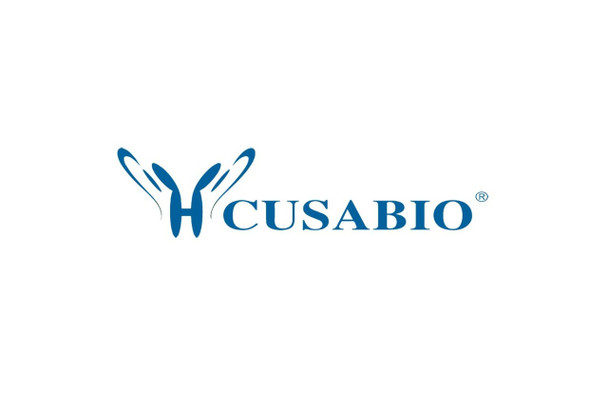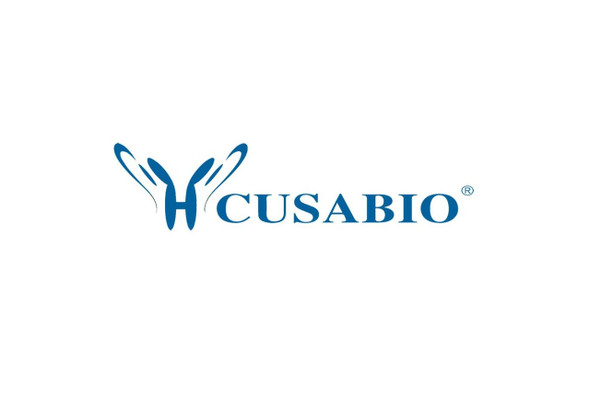Cusabio Human Recombinants
Recombinant Human Tumor necrosis factor (TNF), partial | CSB-EP023955HU
- SKU:
- CSB-EP023955HU
- Availability:
- 3 - 7 Working Days
Description
Recombinant Human Tumor necrosis factor (TNF), partial | CSB-EP023955HU | Cusabio
Alternative Name(s): Cachectin;TNF-alphaTumor necrosis factor ligand superfamily member 2 ;TNF-a
Gene Names: TNF
Research Areas: Immunology
Organism: Homo sapiens (Human)
AA Sequence: VRSSSRTPSDKPVAHVVANPQAEGQLQWLNRRANALLANGVELRDNQLVVPSEGLYLIYSQVLFKGQGCPSTHVLLTHTISRIAVSYQTKVNLLSAIKSPCQRETPEGAEAKPWYEPIYLGGVFQLEKGDRLSAEINRPDYLDFAESGQVYFGIIAL
Source: E.coli
Tag Info: N-terminal 6xHis-tagged
Expression Region: 77-233aa
Sequence Info: Partial
MW: 21.4 kDa
Purity: Greater than 90% as determined by SDS-PAGE.
Relevance: Cytokine that binds to TNFRSF1A/TNFR1 and TNFRSF1B/TNFBR. It is mainly secreted by macrophages and can induce cell death of certain tumor cell lines. It is potent pyrogen causing fever by direct action or by stimulation of interleukin-1 secretion and is implicated in the induction of cachexia, Under certain conditions it can stimulate cell proliferation and induce cell differentiation. Impairs regulatory T-cells (Treg) function in individuals with rheumatoid arthritis via FOXP3 dephosphorylation. Upregulates the expression of protein phosphatase 1 (PP1), which dephosphorylates the key 'Ser-418' residue of FOXP3, thereby inactivating FOXP3 and rendering Treg cells functionally defective .
Reference: Analysis of the gene-dense major histocompatibility complex class III region and its comparison to mouse.Xie T., Rowen L., Aguado B., Ahearn M.E., Madan A., Qin S., Campbell R.D., Hood L.Genome Res. 13:2621-2636(2003)
Storage: The shelf life is related to many factors, storage state, buffer ingredients, storage temperature and the stability of the protein itself. Generally, the shelf life of liquid form is 6 months at -20?/-80?. The shelf life of lyophilized form is 12 months at -20?/-80?.
Notes: Repeated freezing and thawing is not recommended. Store working aliquots at 4? for up to one week.
Function: Cytokine that binds to TNFRSF1A/TNFR1 and TNFRSF1B/TNFBR. It is mainly secreted by macrophages and can induce cell death of certain tumor cell lines. It is potent pyrogen causing fever by direct action or by stimulation of interleukin-1 secretion and is implicated in the induction of cachexia, Under certain conditions it can stimulate cell proliferation and induce cell differentiation. Impairs regulatory T-cells (Treg) function in individuals with rheumatoid arthritis via FOXP3 dephosphorylation. Upregulates the expression of protein phosphatase 1 (PP1), which dephosphorylates the key 'Ser-418' residue of FOXP3, thereby inactivating FOXP3 and rendering Treg cells functionally defective
Involvement in disease: Psoriatic arthritis (PSORAS)
Subcellular Location: Cell membrane, Single-pass type II membrane protein, SUBCELLULAR LOCATION: Tumor necrosis factor, membrane form: Membrane, Single-pass type II membrane protein, SUBCELLULAR LOCATION: Tumor necrosis factor, soluble form: Secreted, SUBCELLULAR LOCATION: C-domain 1: Secreted, SUBCELLULAR LOCATION: C-domain 2: Secreted
Protein Families: Tumor necrosis factor family
Tissue Specificity:
Paythway: MAPKsignalingpathway
Form: Liquid or Lyophilized powder
Buffer: If the delivery form is liquid, the default storage buffer is Tris/PBS-based buffer, 5%-50% glycerol. If the delivery form is lyophilized powder, the buffer before lyophilization is Tris/PBS-based buffer, 6% Trehalose, pH 8.0.
Reconstitution: We recommend that this vial be briefly centrifuged prior to opening to bring the contents to the bottom. Please reconstitute protein in deionized sterile water to a concentration of 0.1-1.0 mg/mL.We recommend to add 5-50% of glycerol (final concentration) and aliquot for long-term storage at -20?/-80?. Our default final concentration of glycerol is 50%. Customers could use it as reference.
Uniprot ID: P01375
HGNC Database Link: HGNC
UniGene Database Link: UniGene
KEGG Database Link: KEGG
STRING Database Link: STRING
OMIM Database Link: OMIM









